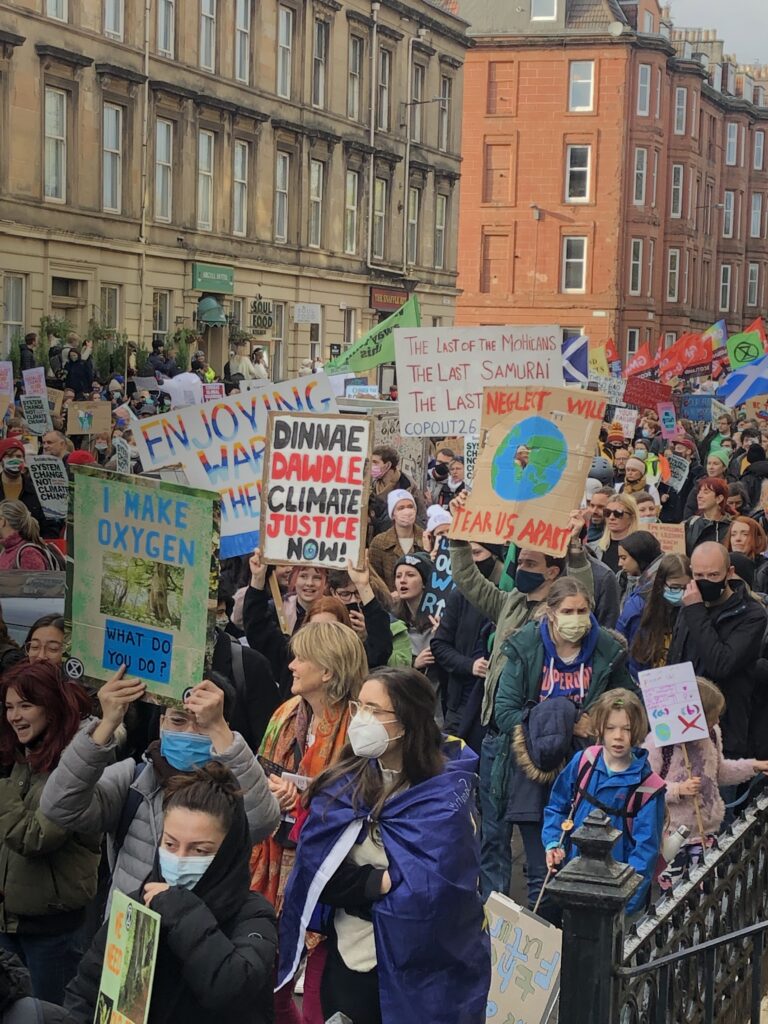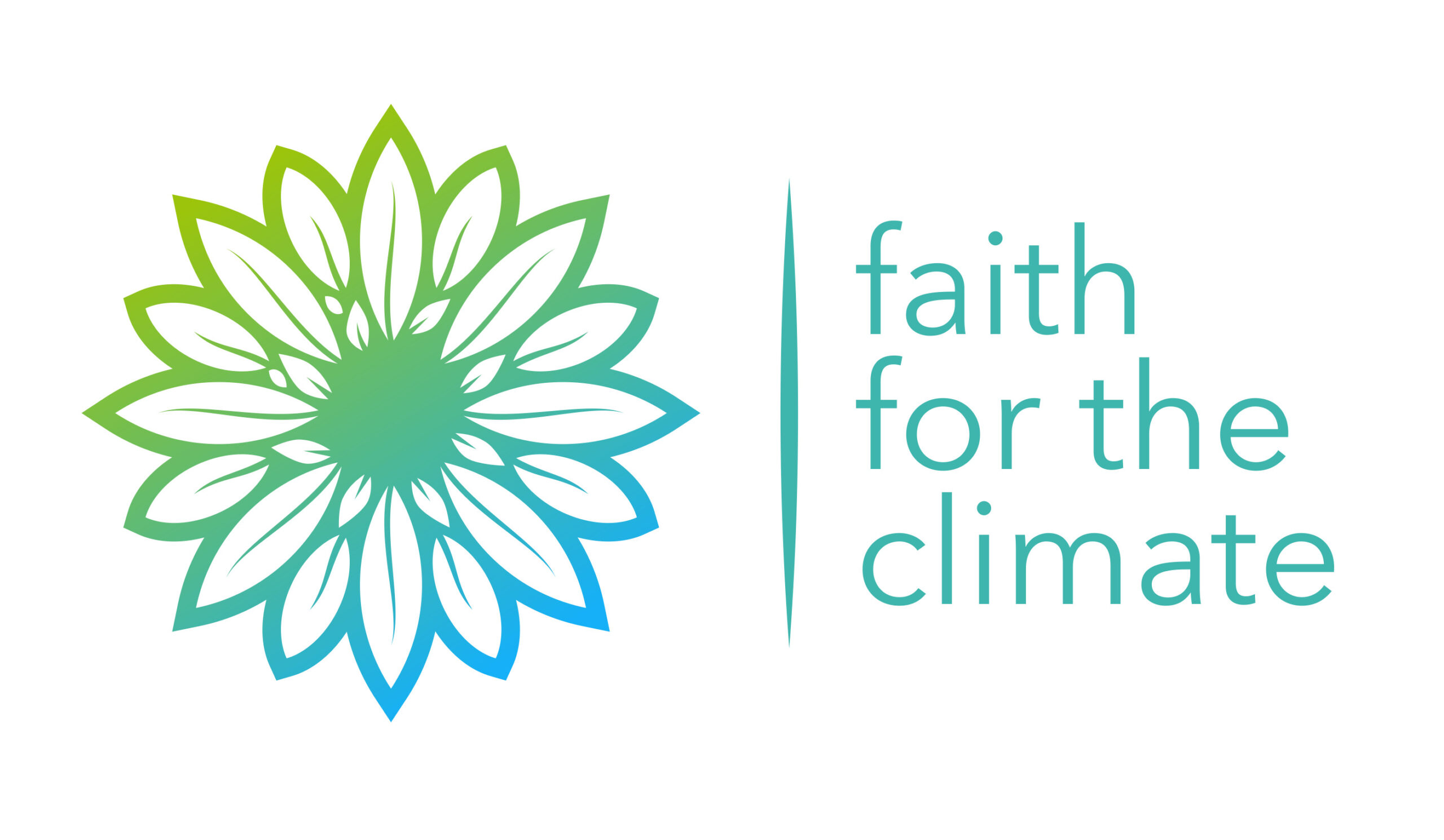Reflections from COP26
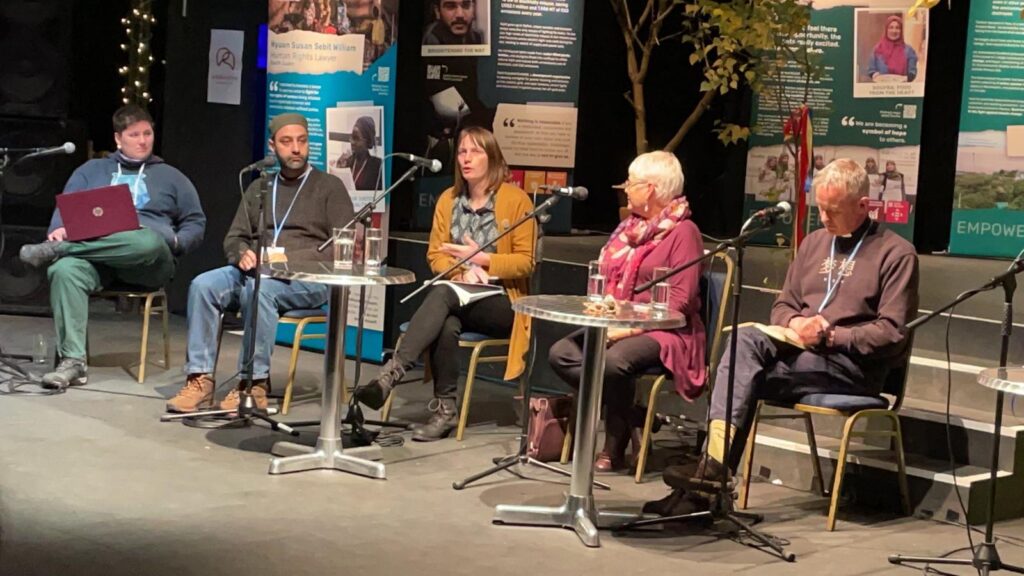
As part of our year-end roundup, we’re publishing a series of personal reflections from core members of the Faith for the Climate team on their experiences at COP26, starting with this moving piece by Kamran Shezad. Kamran is the Sustainability Lead at the Bahu Trust and Director of the Islamic Foundation for Ecology and Environmental Sciences (IFEES/EcoIslam). He was also instrumental in the founding of Faith for the Climate and – as you can see in this article – is a generous, thoughtful and passionate member of the FFTC family.
I was invited to attend COP26 as a civil society ‘observer’ because the Bahu Trust recently gained accreditation with the UNFCCC. I was excited to be part of this crucial opportunity for world leaders to address the climate crisis, the predominant challenge of our times. Here, I’m going to share my personal reflections on my experiences – please note, this is not a detailed analysis of the outcome of the talks!
Before I could even get there, I had some hurdles to cross. The registration process was very bureaucratic, and confusing at times for a first-timer. I finally managed to get all our delegates registered, but the process definitely didn’t seem inclusive to voices outside of the circle of power. Next, I had to find accommodation. Inside Glasgow itself this was way too expensive. I managed to find somewhere in Edinburgh, which meant a two-hour commute every day – after spending approximately 12 hours at the conference too.
Whilst researching my transport to Edinburgh, I was really shocked to find flying was not only quicker than travelling by train, but three times cheaper. I felt really uncomfortable with this. If it wasn’t for the Bahu Trust paying for my expenses, I can see how flying would have been a more attractive option – even though this seems incredibly hypocritical. It really highlighted for me the need to rebalance our transport system in this country.
Arrival
On the day I arrived, I made my way to Glasgow to sort out my security pass. Everything went smoothly, and I was given a small hygiene kit and a travel pass, which gave me free access to all travel across Scotland, not just Glasgow – including any bus, train, or subway. This was one of the best things about the whole conference for me; it worked so well, and saved me a lot of money! It was great to see how an integrated public transport system can really make a difference. I later found out that it was only a temporary system for COP26 and not something that the people of Scotland have access to on a regular basis (an issue which local people have protested about).
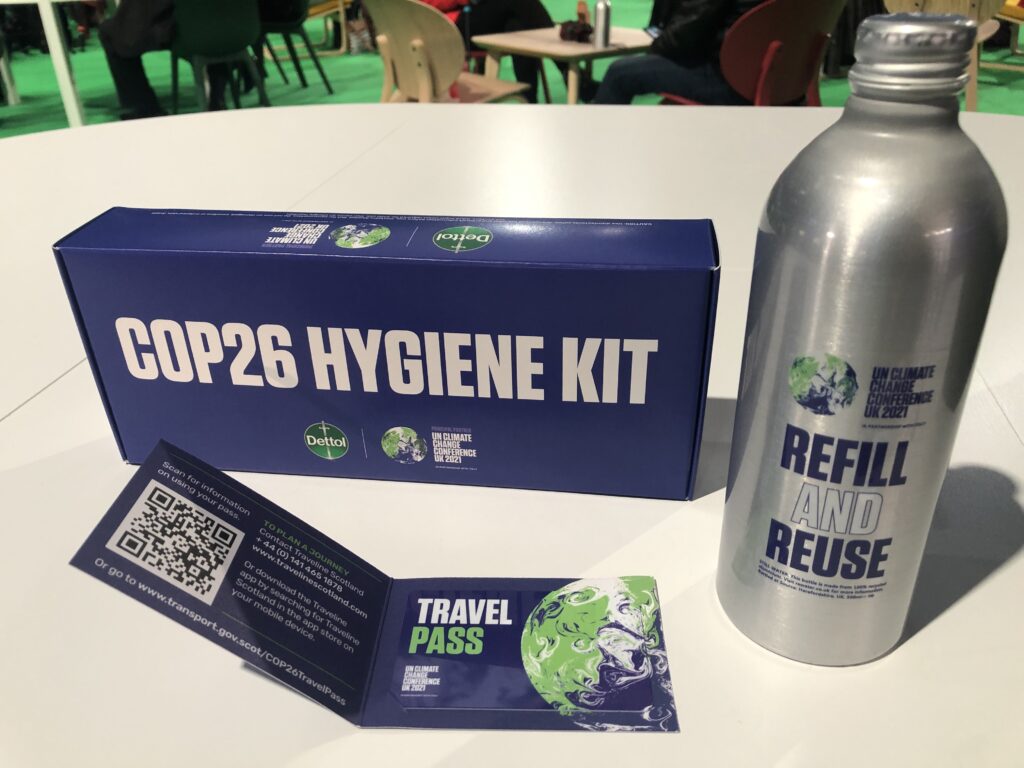
After sorting out my pass, I attended an interfaith vigil in George Square organised by Interfaith Scotland and Interfaith Glasgow. Leaders and members of the various faith communities were all given an opportunity to say a prayer each, but everyone sat and stood together. This was a profound experience for me and a very spiritual moment, and I’m so glad that I started my COP26 process in this way. I left the vigil with a deep sense of interconnectedness and God consciousness. Looking back now, I believe this vigil helped ground me in the days which followed.
In at the deep end
The following day was my first day at COP. It did not begin well. To get into the Blue Zone of the conference, thousands of us had to queue up outside the venue in cold and rainy weather, followed by highly controlled, airport-style security screening. It was very slow-moving and I felt like we were animals being shepherded along. Unfortunately, this was a daily chore that all delegates had to go through, although it slightly improved over the course of the conference. It reminded me of the popular Squid Games series on Netflix when all the contestants had to all line up and slowly walk towards their next game to determine their future.
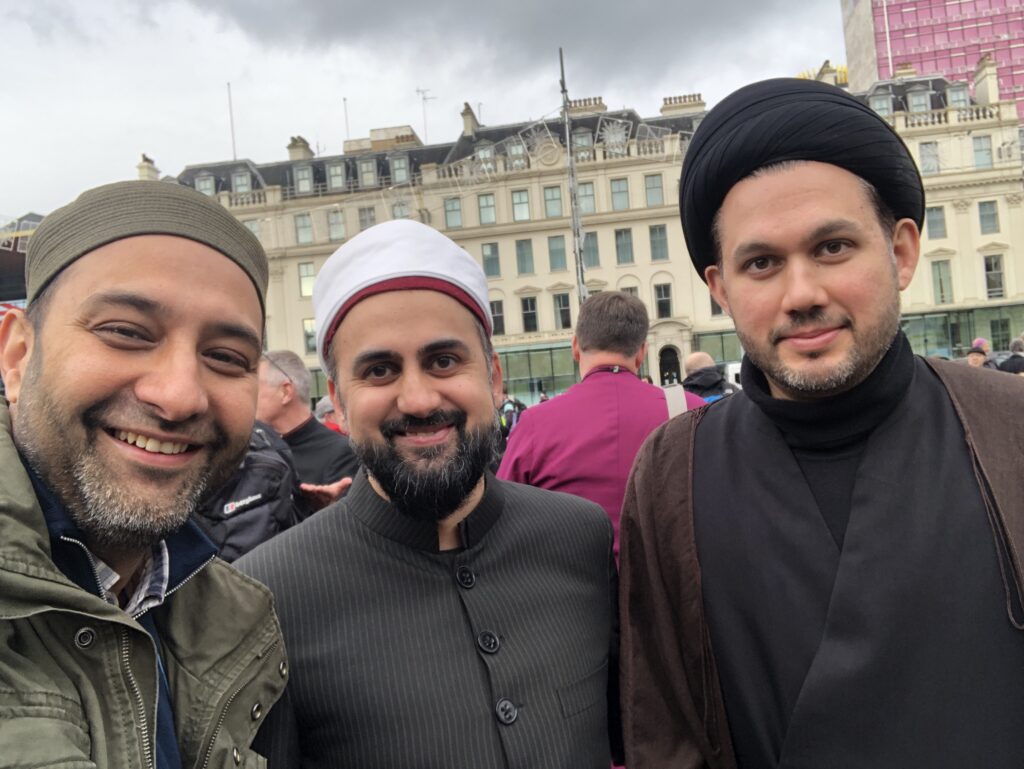
Inside, it was all very overwhelming. There were large corridors with food spaces, delegates from all over the world, lots of expensive exhibition spaces and people jostling for your attention all the time. It felt like a posh marketplace, with lots of corporate branding, I overheard one delegate state that this should be called ‘Conference of Products’ not ‘Conference of Parties’. I agreed with Graham Usher, the Bishop of Norwich and the Church of England’s lead bishop for the environment, when we sat on a panel discussion together and he described feeling ‘discombobulated’ by the Blue Zone.
The first two days of COP26 were dedicated to the World Leaders Summit, and the speeches were all very inspirational – saying all the right things about the emergency of it all. I think at that point I was feeling somewhat hopeful. That is, I tried very hard to be hopeful, and not to see these amazing speeches as substitutes for direct action.
The most inspiring moment for me at this point was listening to Mia Mottley, the Prime Minister of Barbados. Her speech was perfectly delivered and incredibly powerful; her analysis was on-point, and she didn’t pull any punches. She made it very clear that anything above 1.5 degrees Celsius of warming is a death sentence for many around the world. I was deeply moved by hearing her, but I also couldn’t help but feel a little depressed that a country like Barbados, which has clearly been a victim of colonialism, is now pleading for its survival from the same neo-colonial powers.
In the following days, we heard more speeches, and announcements starting to come through such as the ones on deforestation and methane. To me, whilst these meant progress to some degree, it’s not anything we haven’t heard before. Or, even if the announcements had potential, they didn’t necessarily come with any enforcement powers. The most bizarre moment for me was the announcement from Jeff Bezos, one of the richest humans on the planet, that he would pledge $2 billion to restoring natural habitats. The father of modern consumerism was using the COP26 platform to tell us that he had realised the fragility of the earth when he went up in his rocket and looked down on the planet Earth.
By this point I was starting to get the impression of COP26 as a contrived stitch-up, where world leaders and corporate companies get to present their inadequate actions as fixing the problem. Combined with this, there were so many political distractions from Westminster. Here was perhaps the most important climate summit in our lifetime, where our Prime Minister should have been focused on nothing else. But unfortunately, political scandals were distracting public attention away from the talks. Once again, the small matter of life on Earth was being side-lined.
However, I don’t want to sound too negative – COP is a process and I appreciate the political complexities. I want to pay tribute to the observers, activists and negotiators inside the Blue Zone who worked tirelessly day and night to work towards climate justice. There were some good things that came out of it such as ‘Beyond Oil & Gas Alliance’ – whilst still small, I hope that this alliance continues to expand. I also appreciate that I was a first-time observer and I look forward to learning more about the process so that any future engagement is more meaningful. And despite whatever we might think of the final outcome of COP26, I returned to my home city with a new sense of energy and passion – and that’s not because of what ‘world leaders’ were doing.
Good COP, bad COP
So far I have mainly spoken of the COP inside the highly secured area. To be honest, there were two COPs taking place. First there was the bewildering, overwhelming, slightly dreary, and disappointing COP within the Blue Zone – the space for officials, negotiators, country delegates, and accredited observers. And then there was the other unofficial COP, the COP I like to refer to as the COP of hearts and soul – the vibrant, faith-inspired, civil-society-led COP taking place all around Glasgow.
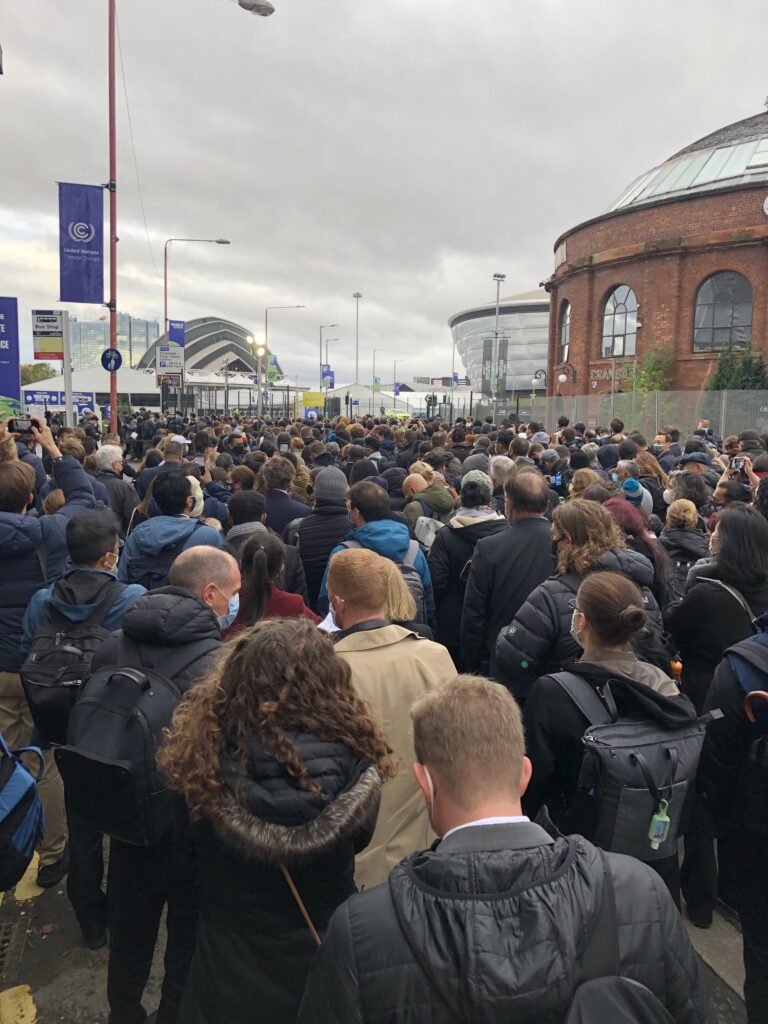
Firstly, the welcome and hospitality from the city of Glasgow was superb. Everywhere I went, local people were very friendly, always smiling and willing to help. It certainly sets a high standard for the hosts of future COPs, to match the energy and vibrancy of Glaswegians.
Next, a particular highlight for me was sharing an official ‘Green Zone’ panel discussion with my friends from the Christian, Buddhist, Sikh, Hindu, and Quaker traditions, a project facilitated by the Faith for the Climate Network. After having worked with each other for a number of years, I felt a sense of pride to be sharing a global platform and speaking about our joint achievements and about how faith can contribute towards carbon neutral cities. I was immensely proud of my 7-year-old son, whose message I was able to play to world leaders calling for a greener future and for them to make bold decisions. This was picked up by various media outlets but ultimately this served as a reminder to me that we need to continue to give a platform to young people for their voices to be heard – they are not just the future, they are the here and now.
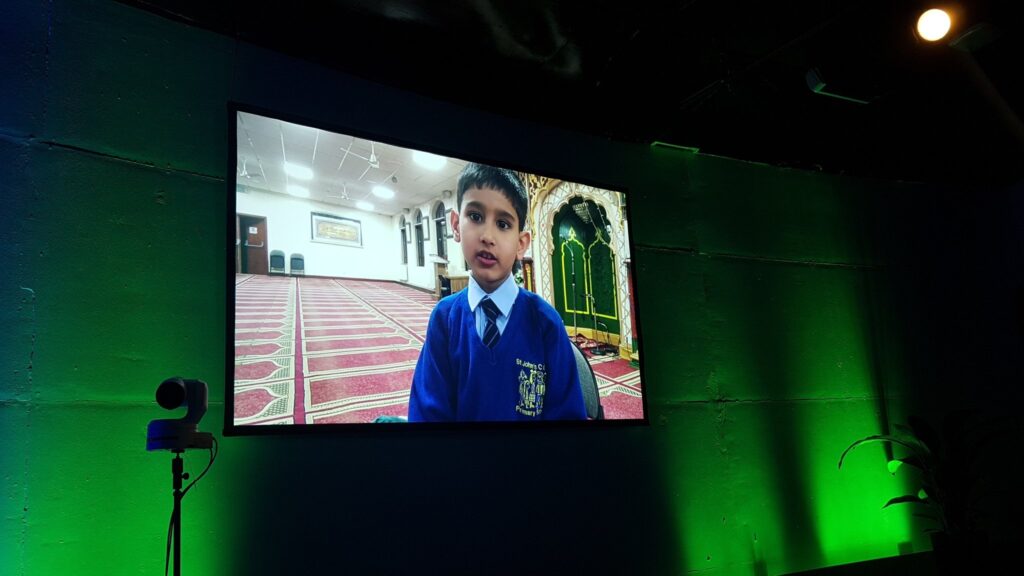
It also brought ease to my heart to hear Canon Giles Goddard, chair of the panel, begin our meeting with a moment of silence. I feel compelled to repeat his introduction, as it sums up so much that was going through our minds:
“I invite you to hold in your hearts those most vulnerable to the climate crisis, who stand to bear the greatest impacts of decisions taken at COP26, but who have experienced and continue to experience the biggest hurdles to make it safely to Glasgow and then back home; also to hold in your hearts the effects of the negotiations directly impacting the communities and Indigenous Peoples in countries least represented by COP; and finally those who have lost their livelihoods, loved ones, and lives in their efforts to protect the planet, and those who will lose their lives today.”
I also had the honour and pleasure of attending many events and vigils in Glasgow organised by activists, I would regularly share spaces with the likes of Rabbi Jonathan Wittenberg, Olivia Fuchs, Shanon Shah and Jo Hindley and John Christopher whose wisdom and energy I benefited from throughout COP26 and no doubt will continue to do. In contrast with all the politicking going on inside, it was deeply moving seeing people of all ages and backgrounds, some in groups and others solo, holding placards with no intentions other than to call for climate justice. I had a sense of standing together in solidarity and interconnectedness. By being there together, we were telling the vulnerable around the world that they are not alone. We are letting them know that we will continue fighting to keep climate justice on the agenda.
I also took part in the Fridays for Future climate strike with over 20,000 people. It was extraordinary to see the passion, enthusiasm and dedication of young people wanting to take control of their future shining out. Just incredible.
One theme that was constant throughout my time at COP was the call for ‘system change not climate change’. I believe so many people have been let down by the final conference outcome. I can only envisage the people’s movement growing as we feel let down by the current state of the political and economic system.
If I had to choose between my Blue Zone access pass, and the placards and banners of the activists, I would choose what I saw outside a hundred times over.
A concluding message to faith establishments
I’m involved in environmental and climate activism because I am motivated by my faith. I believe that standing up for climate justice is an act of worship.
It was very apparent at this COP that the faith community had stepped up too. We were there in numbers, and were very vocal. The media was also focussed on the Camino faith walkers, I was proud that I had the opportunity to host them at the Bahu Trust Mosque when they passed through the city of Birmingham back in September 2021. It pleased me so much that faith actors were starting to get noticed and were seen as a credible voice.
However, saying that, to me it is becoming very obvious that there is a growing gap between the average person of faith who wants to be involved in climate activism and established faith institutions. I am witnessing faith-inspired activists becoming distanced from their own places of worship, because they do not believe them to be in touch with the current discourse on the climate crisis. Some may think this to be a small number but I can assure you that it will grow over time.
As faith establishments, it’s no longer enough for us to be sad about the devastation being caused across the planet, or to hold the crisis in our thoughts and prayers. It’s no longer enough for us to feel sorrow, anger and guilt. It’s no longer enough for us to release statements alone. We must convert these feelings into something more meaningful which brings about systemic change.
We need our faith establishments to:
1) Reinvigorate the teachings of scriptures on the care of creation, in their teachings, talks and sermons
2) Actualise these teachings by promoting Earth stewardship and sustainable living to their congregations and communities
3) Encourage the greening of places of worship, community centres, and spaces where people gather, so that they minimise the impact on natural resources
4) Use their platforms to give a voice to activists, to call for a just transition, and to stand up for the rights of the vulnerable people most affected by the impacts of climate change (including young people, women, children, the poor, refugees and asylum seekers)
5) Use their influence to hold local authority and government agencies to account on climate and biodiversity targets
6) Work with other groups and individuals, both faith and non-faith, who are committed to this cause.
Let’s use our power, influence and access to call for climate justice and for a fair, equitable and prosperous future for us all.
7 Dec 2021
Twitter: @KlimateKam (All pictures courtesy of Kamran Shezad)
Read Rosh Lal’s COP26 reflection
